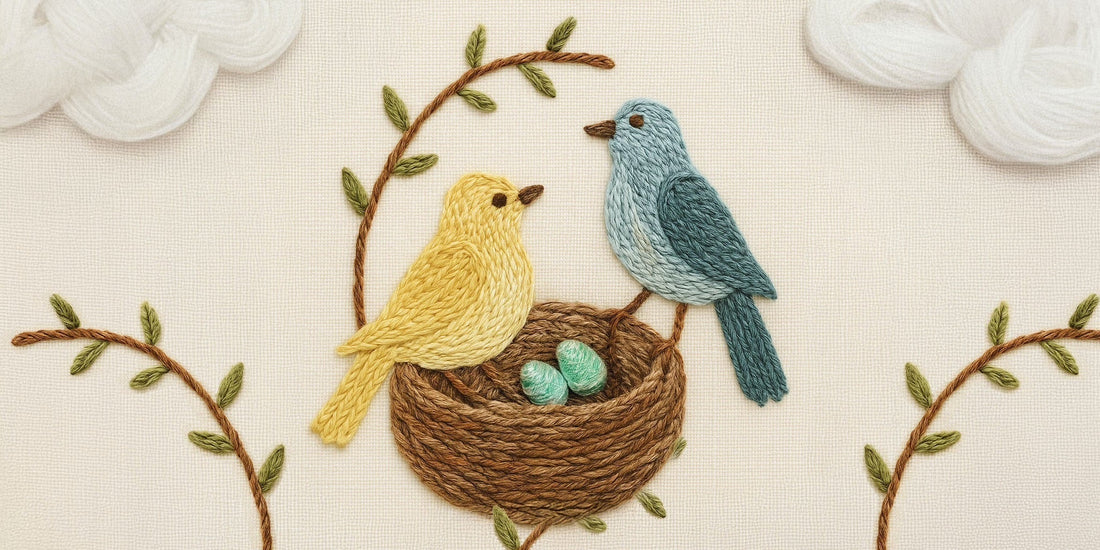
Best Ways to Prepare for Labor, Birth, and Life With a Newborn: Why Communication Matters More Than Checklists
Share
When people picture preparing for labor and the months that follow, they may imagine classes, practicing relaxation and positions, and learning through books or videos. These are all important, to be sure. Unfortunately, that’s where most prep ends.
There’s a huge gap in this process, because just as important is how well you and your partner can talk to each other. The couples who come through labor and those bleary first months feeling connected and supported aren’t the ones who knew every medical term. They’re the ones who learned how to stay flexible and curious about each other and the process.
How to Prepare for Labor as a Couple
The best preparation isn’t about memorization; it’s about connection. Preparing as a couple means talking through the simple, human things: what makes you feel safe when you’re under stress, what kind of touch feels comforting, and what kind of presence helps you settle instead of making you more tense. You might think you already know what your partner needs, but it’s surprising how much gets uncovered once you start asking.
Conversations to Have Before Birth
Talking before the big day is one of the simplest ways to keep things smooth in the actual moment. Share what you imagine labor will be like, what appeals to you, and what makes you nervous. Ask each other: What do I expect from you as my partner? What scares me? Sometimes simply saying a fear out loud makes it feel less overwhelming if it shows up during labor.
These aren’t always easy conversations to begin. You can start with some labor and parenting conversation prompts as a gentle nudge—it’s a simple way to spark talks before you’re sleep-deprived and knee-deep in diapers.
What Makes You Feel Safe During Labor?
Feeling safe in labor is more about relationships than room décor, and it’s a factor that’s rarely addressed. For some people, safety might mean having as many supportive family members nearby as possible. For others, it might mean just one person by the bedside and no interruptions. A doctor. No, a midwife. More or less intervention? These aren’t things to leave to chance. If stress makes your body tense now, imagine how that might feel in labor. That’s why it helps to create a safe, nurturing environment before birth.
It’s worth asking each other: What makes you feel secure? What would leave you feeling unsupported? What role do I want my birth partner to play—coach, quiet presence, or comic relief, and how does that birth partner feel about my expectations? Knowing the answers in advance means you’ll both walk into labor with a clearer picture of how to be there for one another.
Both partners should be asking and answering these questions. If one of you feels off or unsupported, it can skew the entire experience.
Why Flexibility Is the Key to Birth Plans
Rather than a birth plan, consider creating a birth flow chart. There’s nothing wrong with a birth plan—but flexibility is everything. You may picture one scenario only to find yourself feeling completely different once labor begins. You thought you’d want massage and counter-pressure, but in the moment, find yourself not wanting to be touched. Interventions you skipped in preparation because they felt unappealing suddenly are being suggested. Or the practitioner who you were hoping would be there isn’t on-call. Things change.
The plan isn’t the problem; it’s treating it as unchangeable. If you both understand that adjustments are normal, then shifting course doesn’t feel like failure. It feels like adapting—something you’ll both be practicing again and again as parents.
Preparing for Life With a Newborn Together
Labor is the beginning. Life with a newborn is every day after. Talking about how you’ll manage the basics can save you from resentment later. What will the distribution of responsibilities look like? What will your framework be for when that distribution feels unfair?
The reality is that fairness with a newborn often doesn’t feel like 50/50. Some days, the best you can hope for is when both partners feel a little bit cheated but have made it through the day. That’s normal, and expecting it can help you roll with it and put the day down as a win. When it becomes a pattern, the skills practiced in birth prep will pay off: curiosity, openness, and knowing that parenting, too, requires flexibility.
Sleep, Free Time, and Identity After Birth
The clichés are true: there will be far less sleep and free time. But what often takes couples by surprise is how much identity can shift after a baby arrives. Talk now about how you’ll each protect parts of yourselves and your relationship outside of parenting. Which hobbies or routines do you want to hold onto, even in a small way? Which ones can you let slide for a while?
This also extends to intimacy and sexuality—things will be different as recovery and adjustment happen. Acknowledging this—saying the hard part out loud—can actually build intimacy. Learning about each other is as important as anything a book or influencer can offer.
Feeding Choices and Partner Support
Feeding is one of the biggest early decisions and often one of the most loaded. If breastfeeding is the plan, what does support look like from the non-feeding partner? What support will mom need as she learns this new skill while recovering?
Who will be nurturing the partner as they care for their family? What support might they need as they too adjust to a new role and new responsibilities?
If formula or pumping are the path, what’s the strategy? Will you be sharing night feeds with the baby? Does one person do the feeds, the other the prep and cleaning?
Feeding isn’t the only way to bond with a newborn. Baby wearing, tummy time, singing, walks, baby massage, and snuggling—all of these are nurturing for babies. Some even contribute to growth, less crying, and more. Sometimes dads or grandparents can feel left out if they aren’t feeding the baby. Bringing these in can help all family members—both newborn and adults.
Setting Boundaries With Family and Friends After Baby Arrives
Everyone wants to meet the baby. Not everyone knows how to do it in a way that’s actually helpful. Talking now about boundaries—who visits, when, and what happens while they’re there—prevents awkward moments later. Decide how you’ll handle unsolicited advice or “help” that doesn’t feel helpful. More importantly, talk about how to communicate your boundaries.
Relationships with family and friends can shift after a baby arrives. In the early weeks, a little planning makes it easier to nest quietly as you learn one another without guilt when. As you emerge as a new family unit in this latest version of yourselves, be prepared for this aspect of life to also require flexibility. Much like birth, boundaries and relationships require flexibility and a willingness to evolve rather than a strict plan.
The Role of Communication in Surviving the First Months With a Baby
If there’s one thread that runs through labor, birth, and newborn life, it’s communication between parents. Not polished, perfect communication—just the kind where you keep talking, even when you’re tired and short-tempered.
Some days it will feel like compromise, other days more like a negotiation where nobody gets exactly what they want. And that’s okay. The point isn’t to get it right every time—it’s to keep showing up for each other, adjusting, and trying again tomorrow.
Because at the end of the day, preparation for parenthood isn’t a flawless strategy or a perfectly executed plan. It’s building the trust that even when things don’t go the way you expect, you’ll face it together. And if you’d like a simple way to practice those conversations before things get messy, FACE Cards can help spark them.
